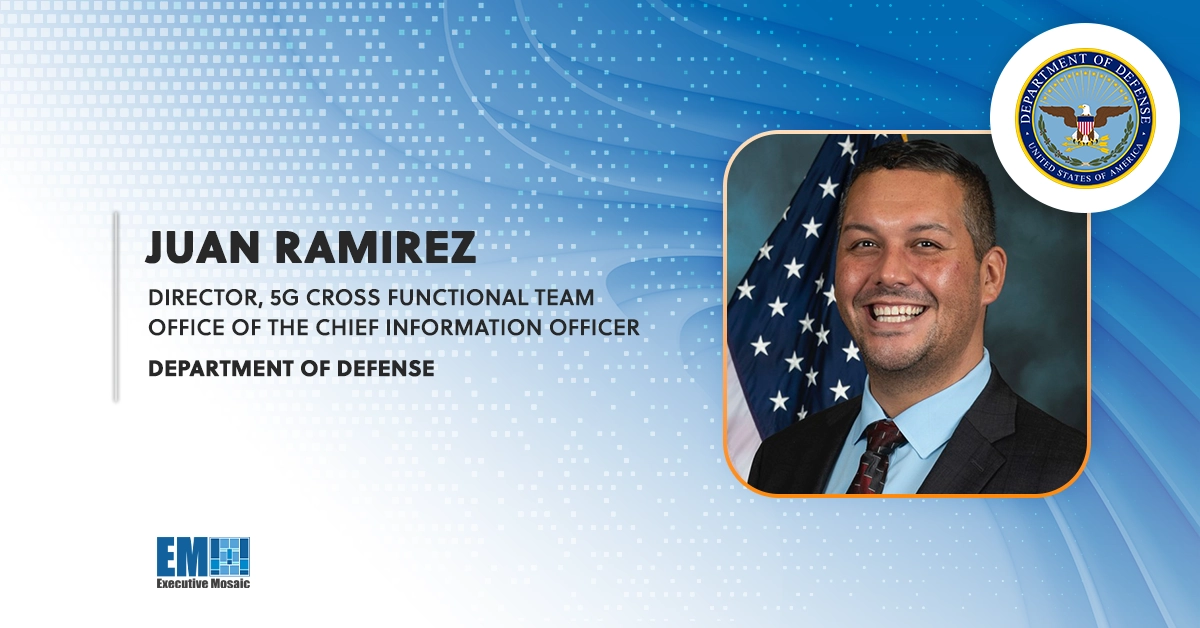Many technologists assert we are entering the Age of Artificial Intelligence and the U.S. government is taking steps to prepare for this revolution. President Biden issued the Executive Order on the Safe, Secure and Trustworthy Development and Use of Artificial Intelligence in late October and the Department of Defense has been working to incorporate the technology in its activities and set up various groups and task forces.
But experts say that without meaningful changes made to government contracting processes, the federal government will not be able to capitalize on all that AI has to offer. In some cases, if certain provisions aren’t enacted, classified missions and information could be put at risk.
Want to dive deep on AI and its place in the federal government? Every year, Potomac Officers Club hosts its annual AI Summit and 2024’s edition is right around the corner. On March 21, POC will host the in-person, all-day fifth edition of its event, gathering top officials from the CIA, DOD, National Geospatial-Intelligence Agency and more. You’ll have the chance to ask these leaders your most burning questions and network with peers from elite GovCon companies. Register here now!

In a recent Federal Times article, Devaki Raj, co-founder and former CEO of CrowdAI, offered five steps the government should take to redraw procurement rules and regulations to prepare them for AI’s decisive arrival.
- Contextualize data
Raj says the private sector is not able to offer government effective AI solutions out of the box; thus, data must be organized and treated carefully so that models can be conditioned and programmed effectively. “ Without the correct data, AI models cannot produce the desired outcome,” she writes. This step must be taken by the government prior to procuring any kind of technology from a contracted organization. (Or, of course, the government could contract an enterprise to sort and prep its data.)
- Be flexible and iterative
Since AI in particular, but also most technology projects in general, is frequently mutating and transforming, there needs to be an openness to updates and new maintenance built into the contracts.
“Governmental contracts must go beyond making a simple, one-time purchase and entrench the iterative nature of AI into their frameworks. A contract must be a reflection of the technology it is purchasing: adaptive, agile, and perpetually improving,” Raj said.
- With new opportunities comes new risk
Open-source model AI programs and tools have significantly increased accessibility, according to the former CrowdAI CEO (who sold the company to Saab and subsequently joined the latter organization as chief digital and AI officer). However, this proliferation and “democratization…complicates vetting, particularly for government agencies that may not have the in-house technical acumen to validate a model’s suitability for intricate missions.”
Part of the iterative process mentioned in the prior tenet means that procurement protocols need to enforce regular check-ins where in-house subject matter experts evaluate if the developing AI is still on track to meet mission requirements, data privacy and security expectations and ethical demands.
4. Reimagine SBIR
Raj feels that while support programs like the Small Business Innovation Research have protected and assisted small businesses in contracting situations to some extent, they have not done enough.
She contends that agencies ought to “track and prioritize the quantity of projects transitioned to programs of record, not simply measure the quantity contracts or funds awarded.”
“What’s more, departments and agency [sic] that participate in SBIR must update transition mechanisms, the contracts and funding, that will account for a capability needing significant ongoing improvement such as AI,” she added.
5. Support international frameworks
We need not give into the longstanding delay between new technologies and regulatory policies, Raj says, and have to stay current and involved in international agreements and coalitions with regard to AI. Going beyond a national AI strategy, the current global climate demands involvement and detailed dialogues about “the multi-faceted impact of AI, from cooperative security to ethics.”

The March 21 AI Summit, from Potomac Officers Club, will cover all of these subjects and more. Conversations at the event will help to chart the way forward for the government and its AI mission. Last year’s event sold out; don’t wait, register here today!






